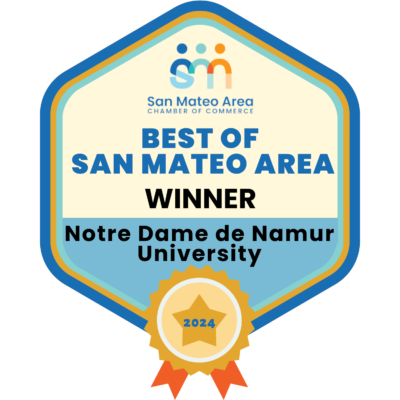Remarks from Sr. Dorothy Stang’s Special Mass on February 4, 2025
by Jim McGarry, former Director of NDNU’s Sr. Dorothy Stang Center for Social Justice and Community Engagement
On Wednesday, February 12, a week from tomorrow, it will be twenty years since Sister Dorothy Stang was murdered.
An eye-witness that day was hiding a short distance away, having just come upon the scene where her murderers were threatening her with pistols. He testifies that Sr. Dorothy opened the Bible and was reading that which you just heard in today’s Gospel reading: the Beatitudes. It was her favorite Scripture. We don’t know exactly which of those eight beatitudes she was reading when the three bullets pierced her body, leaving her dead in the mud of the forest path. I think we who seek her guiding presence among us, we get to choose one.
So today, I’m going to ask us to imagine that Sr. Dorothy was reading this Beatitude: “Blessed are those who have next to nothing, for they shall inherit the land.”
The first part of this verse, “Blessed are they who have next to nothing,” describes the status of most of the people in the world down through history. They are born poor and they die poor and if they’re able to accumulate anything in life, it’s often lost to them by the time they die, taken away by war or famine or crime or fire or flood or–as is so often the case in Sr. Dorothy’s Brazil–what the poor have is taken away by the greed of others. We have a phrase in English that captures the result of these disasters. “They are left with next to nothing.” This is a good translation of the first half of this Beatitude, “Blessed are those who have next to nothing.” Often, with whatever they might have left and can carry with them, these folks who have next to nothing leave what was home and go towards a more promising land. They migrate.
These migrants are the people with whom Sr. Dorothy worked in Brazil. They came from the favelas or slums of the Brazilian cities, or they came from farmland in other regions of Brazil that had been degraded due to overuse and then vanquished by drought or flood. What land or jobs they may have had became broken promises on which they could not make a living. They came as migrants to the heart of the Amazon believing –correctly it turns out –that this land of water and trees full of amazing animal and plant life must be a better place. The Brazilian government believed that too and actually gave these migrants land titles on pieces of paper describing the hectares of land that would be theirs.
Sr. Dorothy came to Para State Brazil in 1966 to minister to these migrant people, to live among them to find out what they needed and to help them acquire it. She always said the first thing they told her they needed was schools. They wanted education for their children. Dorothy founded at least 21 schools in her 39 years there. These were schools on the popular education model, which meant that when you completed the elementary curriculum, you taught it to the next group coming up, while you yourself started on the secondary curriculum taught by folks who had just finished that coursework. Sr. Dorothy was so proud of her first student to get accepted to university – a young woman going to study agronomy, the science of agriculture.
The second half of this Beatitude is, “they shall inherit the land.” So the full Beatitude is, “Blessed are they who have next to nothing, for they shall inherit the land.” I do think that we are asked to take this Beatitude literally—as Dorothy did. The promise here is for actual land: soil, plants, animals, trees. Yet the beauty of this phrasing of Jesus is in the verb inherit. It is not ‘take possession of the land’ or even ‘own the land:’ the promise of the Beatitude is “inherit.” It is the most incredible promise for a family who has next to nothing and whose parents had next to nothing. But if the land, the house, the wealth doesn’t come from your family, what is there to inherit? Jesus is promising an inheritance of land – from God. Now this is not a reference to our heavenly inheritance, though that is coming too and Sr. Dorothy is enjoying it now. This Beatitude is a very earthly, earthy promise: actual land to build a house on, to grow crops for food and sale, a place to raise your family.
Sr. Dorothy worked tirelessly with these families who inherited land to preserve that inheritance–and that is why she was killed. Greedy people wanted the small plots of land these migrants had been given and she fiercely defended the rights of the migrants. And now she calls on us to continue the work. I believe she is saying to us here in the United States today: Find the people in our midst who are on the move, fleeing danger and death, in search of a land of promise. Stand with them, ask them what they need. Help them secure it.
I believe that as we remember Notre Dame de Namur Sr. Dorothy Stang today, at this Celebration of the Eucharist, we get to choose not only which Beatitude she was reading when she was killed but which Beatitude — or Beatitudes — will guide our lives, which of these incredible promises will be the north star of our life journey. The star to follow is the one whose name is “those who have next to nothing.” God’s poor are our guiding light with whom we can walk to the land of our common wild and beautiful inheritance on this earth.
This was Dorothy’s journey. May it be ours.
Blessed are they who have next to nothing. They shall inherit the land.

